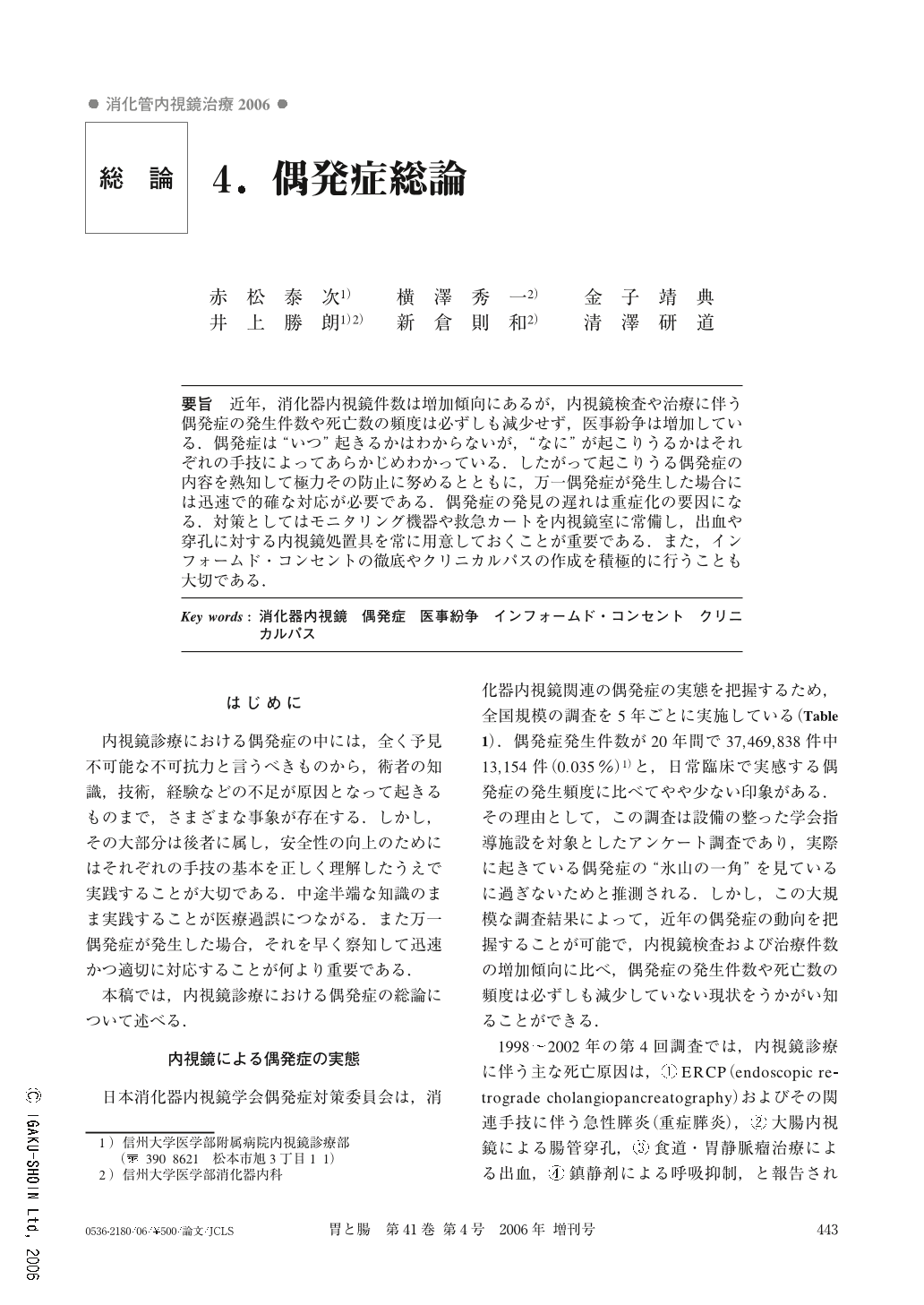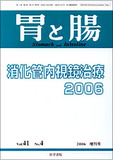Japanese
English
- 有料閲覧
- Abstract 文献概要
- 1ページ目 Look Inside
- 参考文献 Reference
- サイト内被引用 Cited by
要旨 近年,消化器内視鏡件数は増加傾向にあるが,内視鏡検査や治療に伴う偶発症の発生件数や死亡数の頻度は必ずしも減少せず,医事紛争は増加している.偶発症は“いつ”起きるかはわからないが,“なに”が起こりうるかはそれぞれの手技によってあらかじめわかっている.したがって起こりうる偶発症の内容を熟知して極力その防止に努めるとともに,万一偶発症が発生した場合には迅速で的確な対応が必要である.偶発症の発見の遅れは重症化の要因になる.対策としてはモニタリング機器や救急カートを内視鏡室に常備し,出血や穿孔に対する内視鏡処置具を常に用意しておくことが重要である.また,インフォームド・コンセントの徹底やクリニカルパスの作成を積極的に行うことも大切である.
Complications in endoscopy are one of the most serious problems for endoscopists. We should have knowledge about what kind of complications might occur in each endoscopic procedure, and we must make efforts to avoid them to the best of our ability. Informed consent is essential not only for therapeutic endoscopy but also for diagnostic endoscopy. Unfortunately, if some complication occurs during endoscopy, we should notice the occurrence of the complication and counter it as soon as possible. Delay in the discovery of a complication might result in serious injury to a patient, and occasionally it might even result in death.
We cannot estimate “when” complications will occur, but we can know in advance “what” kind of complications could occur. High level endoscopic procedures have a high risk of complications, so we should improve our skills in endoscopy and provide against the possibility of complications at all times.

Copyright © 2006, Igaku-Shoin Ltd. All rights reserved.


